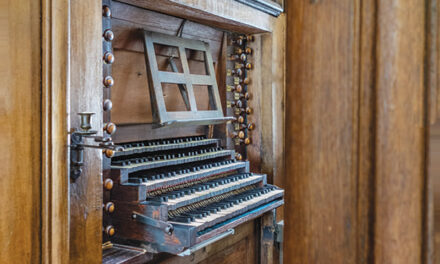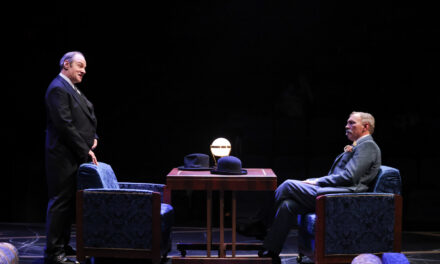 In a virtual concert on Thursday night, Wynton Marsalis led a septet of performers drawn from his Jazz at Lincoln Center Jazz Orchestra in a 60-minute performance of his new composition, The Democracy! Suite. Written during the ongoing pandemic, Marsalis proved why he is at the top of the jazz world. His trumpet playing was superb and his composing and orchestration skills are outstanding.
In a virtual concert on Thursday night, Wynton Marsalis led a septet of performers drawn from his Jazz at Lincoln Center Jazz Orchestra in a 60-minute performance of his new composition, The Democracy! Suite. Written during the ongoing pandemic, Marsalis proved why he is at the top of the jazz world. His trumpet playing was superb and his composing and orchestration skills are outstanding.
The Democracy! Suite consists of eight movements representing the challenges we currently face in our country with the themes of protest, participation (voting), loss of loved ones due to the pandemic, history repeating itself, and the joys of community, dancing, celebration, and hope. His gracious introductions to the meanings of each movement engaged the audience and gave structure and organization to the music. But even without his explanations of each movement this music stands on its own for a number of reasons.
Blending modern with traditional jazz, Marsalis’ suite is never dull but always accessible, lush and driving. His orchestrations are always interesting, often splitting the four horns into two sections with two playing the melody while two played the backgrounds. But the variety of woodwinds his two saxophonists play enabled him to create a wide pallet of colors in this work. By the end of the suite the music leans more towards modern four-part harmony in the horns.
Marsalis never took the music over our heads. There were modern adventurous solos by all the horn players at times and there were many solos that connected to the tradition of the blues, dance and group improvisation as in the early jazz of New Orleans. But solos never went on too long. Sometimes solos might only last four bars: that’s because Marsalis ingeniously wrote four-bar harmonic phrases for many of his songs. While these four bars hint at common blues progressions he seems to create an endless alteration of the basic chords within the four-bar phrases.
He has a way of creating familiar sounding forms, harmonies, melodies and rhythms but they are always new in one way or another. Sometimes he borrows ideas from past composers, such as in the first movement, called “Be Present,” in which he composed a variation of the well-known jazz standard, “Song for My Father” by Horace Silver. I guess Marsalis used this theme as a tribute to his father, the legendary New Orleans pianist, Ellis Marsalis, who died this year from COVID. In movement five, “Deeper than Dreams,” he uses modal harmony with pedal points in a similar way to John Coltrane’s “Alabama.” The third movement, entitled, “Ballot Box,” is a fast tempo variation on the time-tested jazz improvisation vehicle, Gershwin’s’ “I Got Rhythm.”
One favorite moment for me is his second movement, “Black Lives Matters,” in which he creates a four-note theme, one note for each syllable of the title. The theme repeats itself in harmonic variations to make up practically the entire composition. There was no singer in the group but you could sing along with the music. Keeping it simple worked here for Marsalis and throughout the concert.
And like his main idol Duke Ellington, who had a great skill in presenting all of the unique voices in his famous jazz orchestra, Marsalis craftily spotlights the individual sounds of his musicians. Ted Nash‘s alto sax and soprano solos are modern and sophisticated, and he had a soaring flute solo on “Ballot Box.” Walter Blanding (mostly on tenor, but also at times on clarinet and soprano), had strong solos throughout the concert, most notably his screaming solo on funky movement four, “That Dance We Do.” Trombonist Elliot Mason is one of the three fine trombonists in JCLO, all of whom Marsalis says have perfect pitch. (How he selected one of them for the septet must have been difficult.) Mason played very expressively and in a very modern style by playing altered harmonies, but I especially enjoyed hearing him when he traded four-bar solos with Marsalis because they sounded like they were having a conversation.
Throughout the suite, the rhythm section is totally supportive; you could always feel the pulse and full tone of bassist Carlos Henriquez, the subtle comping and nimble solos of pianist Dan Nimmer. Drummer Obed Calvaire provided many different steady grooves and dynamic contrasts and yet he never over-powered the bass or piano.
Marsalis continued taking us to even higher musical levels in movements six, “Out Amongst the People,” and seven, “It Come ‘Round ‘Gin,” and it seemed like you couldn’t stop his outpouring of ideas. But he had to find a way to conclude the suite, and the last movement, “That’s When We All See,” with its second line/New Orleans groove, left us with the message of hope and joy.












